Interview with Mark Gluhovsky (Part I)
– Editor of the Russian 'Chess review' magazine (Shahmatnoe obozrenie) –
on Sachový Vlak (chess train) at October 17th between Bratislava and Krakow (between round 9 and 10 of the train tournament)
| MG | (Mark Gluhovsky) |
| MK | (Michael Klyszcz) |
| RS | (Reyk Schäfer) |
| VC | (Valeria Chugunova) |
 MK: Privjet Mark, thanks for coming! First of all, please let me introduce us to you: We, Reyk and I, are chess players from a German chess club in a small village called Löberitz. We're running a club homepage. There we try to report what we do, where we are and a lot about chess, of course. We're accompanied by our friend Valeria from Moscow, who joined us on this chess train trip.
MK: Privjet Mark, thanks for coming! First of all, please let me introduce us to you: We, Reyk and I, are chess players from a German chess club in a small village called Löberitz. We're running a club homepage. There we try to report what we do, where we are and a lot about chess, of course. We're accompanied by our friend Valeria from Moscow, who joined us on this chess train trip.
And you are the publisher of a famous Russian chess magazine, right?
MG: Yes, the magazine is called "Shahmatnoe obozrenie" (= "Chess review"). Actually it is the only one in Russia.
MK: Really? That's the only one?
MG: The only one, the last one ... the best one (laughs)!
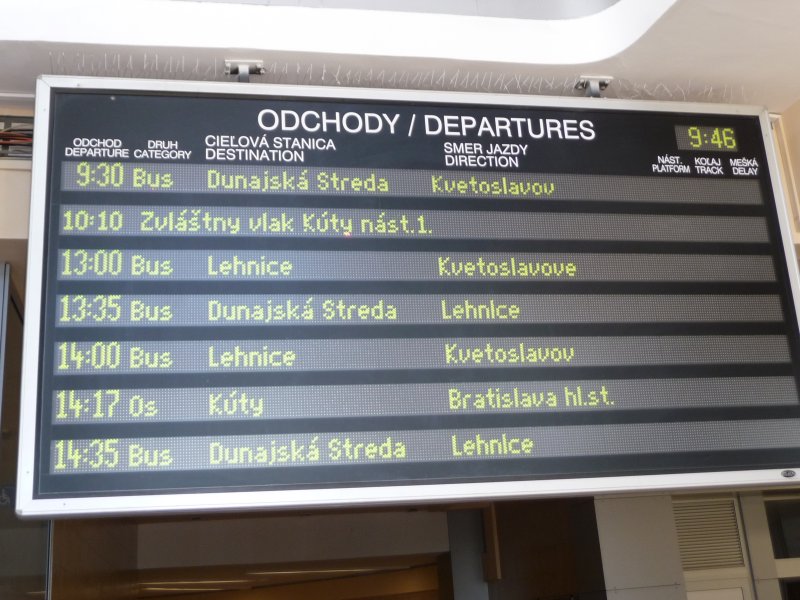 RS: For how long has it been there?
RS: For how long has it been there?
MG: More than 40 years. To me it has been an interesting job for so many years now and an important part of my life. This way I can join exciting events like this one.
In Russia a lot of people are playing chess on a train, but nonetheless this event is special.
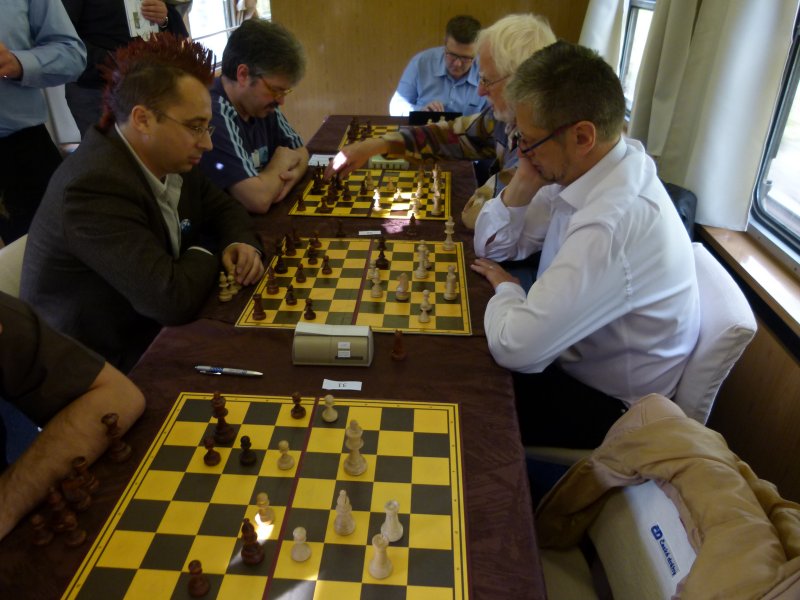 MK: You mean they are playing on a train just for diversion like some people do at the beach?
MK: You mean they are playing on a train just for diversion like some people do at the beach?
MG: Yes, exactly. Compared to European distances in Russia it might take you 2-4 days to reach a destination by train. So we used to have chess sets in every coach of every train. Or you could ask the steward of a train to bring you a chess set. I remember this quite clearly since I travelled a lot when I was a student.
When I went to Azerbaijan once there was a young man who asked me to play a game. I agreed, but there was no chess set available on that train. So he said "We can play it blindfold if you want." I said "Okay!" and we played a very interesting game. I resigned on move 30. However, after that game he became a friend for more than ten years.
Okay, but what we are talking about is one of the ways to kill time on a train. Now we're here on a very special train, playing a chess tournament. That's another situation.
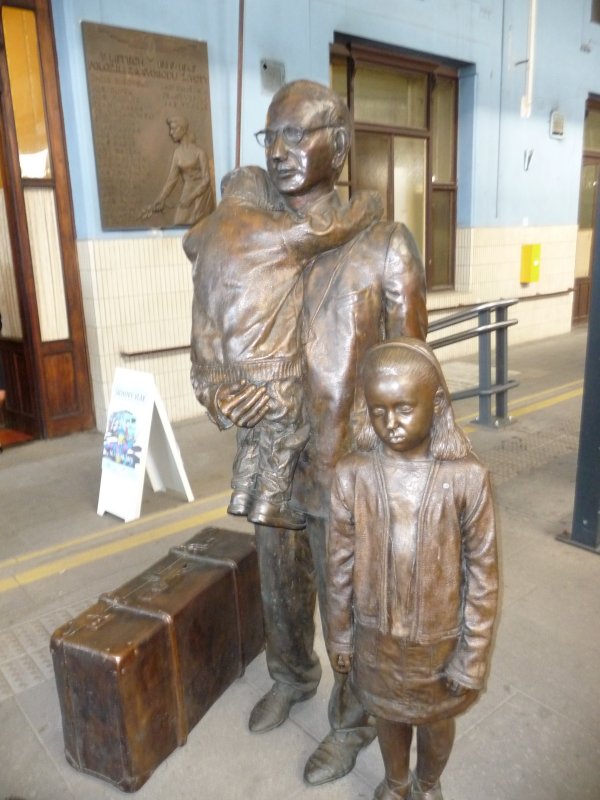 You understand that you need an arrangement with the Railway Company and chess players or chess organizers and you can't rent a train so easily. But after Pavel Matocha had introduced this idea it could be realized. When Alexander Bakh organized the first Aeroflot Open back in 2002 he opened up a new territory. Meanwhile we celebrated the 10th edition.
You understand that you need an arrangement with the Railway Company and chess players or chess organizers and you can't rent a train so easily. But after Pavel Matocha had introduced this idea it could be realized. When Alexander Bakh organized the first Aeroflot Open back in 2002 he opened up a new territory. Meanwhile we celebrated the 10th edition.
So, if we have another train event, I will really enjoy it and join with my family. My two sons already play Open tournaments! Thus we could participate together and rejoice moving through 5 cities within 5 days with 4 different currencies in 5 days - as now. Maybe next time one of these countries might have the Euro, too - so it would be more comfortable (laughs). Or maybe we'll just have a different route then.
MK: In a chess train from Lisbon to Vladivostok you could indeed play some rounds ...
MG: Yes, you could even finish a whole candidate tournament (everyone laughs)!
MK: Chess used to play a major role in Russian daily and public life ...
MG: No!
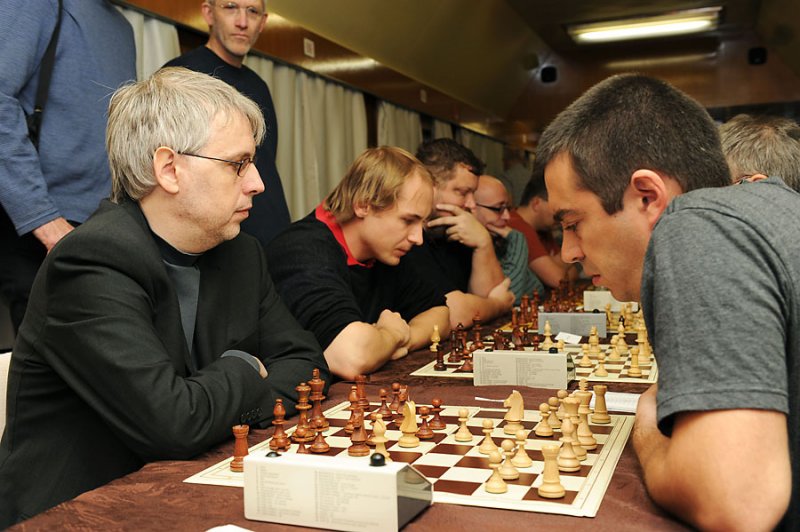 MK: Has it changed?
MK: Has it changed?
MG: Yes. And I believe, it has changed forever. I like what Grischuk said about this: "In Soviet Union chess was undeservedly popular and now it is undeservedly unpopular." So we try to find a compromise. And that's okay - it's just a game.
Just imagine, every day, every hour thousands of computers try to find new lines, new ideas. Chess will be more boring at high level, unfortunately. Today you do not only have to check and analyze many lines, but you have to memorize a lot of more information. Nowadays a grandmaster doesn't arrive at a game not after walking or doing some sports, but after preparing for many hours at the computer. Some players have a bad memory and will fail anyway.
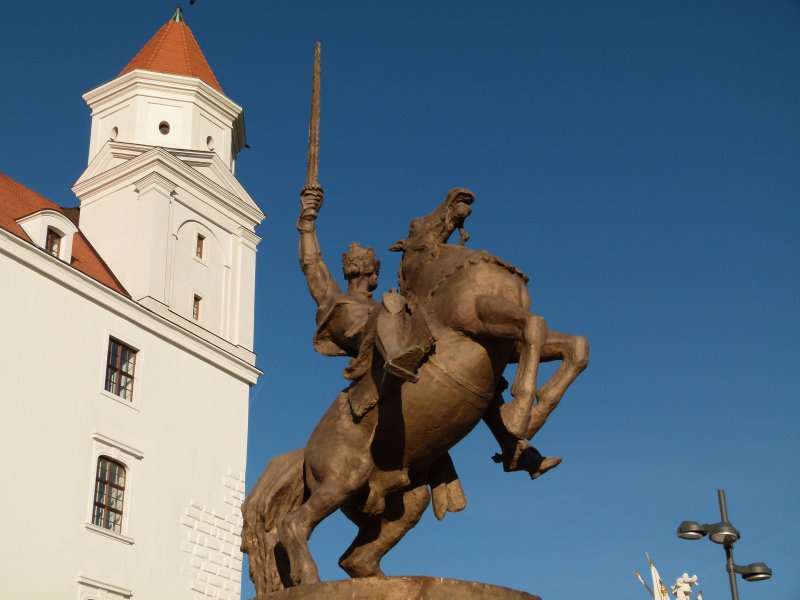 MK: Thus competitions are increasingly about human weaknesses than about pure chess skills. Who runs out of memory first, will also lose the game?
MK: Thus competitions are increasingly about human weaknesses than about pure chess skills. Who runs out of memory first, will also lose the game?
MG: Yes, for sure. But apart from these basic attributes the conditions for top level chess are getting better and better recently. At times when Kasparov and Karpov played, only these two and maybe 2-3 more GMs made good money. But now, if you are in the TOP 20, you have a good job, good conditions and good money.
Then we've had only 3 super tournaments a year - these were Dortmund, Wijk aan Zee and Linares. If you had not been invited to those tournaments you had no possibility to play chess (for good money) at all. Now we have at least 10 tournaments where grand masters with an Elo of 2700 and higher like f.e. Caruana, Nepomniachtchi can participate. There are lots of tournaments for them now. So I'm sure that everything is fine in that regard. But maybe we should change the game a bit to avoid memorization of thousands of lines. This is not meant for amateurs of our level for we can play all the time almost without memory (laughs).
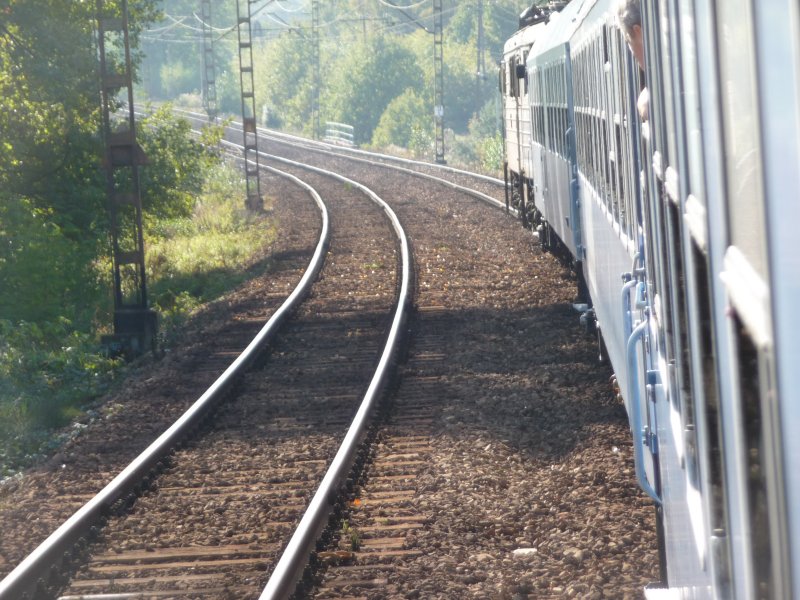 RS: What do you think about the rule changes proposed by Kramnik in this context to forbid castling during the first ten moves?
RS: What do you think about the rule changes proposed by Kramnik in this context to forbid castling during the first ten moves?
MG: Yes, as usually when Kramnik is proposing something, it is well considered. So it's a good concept, but maybe it wouldn't change enough. Another interesting proposal is to change the result for stalemate, something like 0,75 - 0,25 points. It would have a serious impact directly on many endgames like king/pawn vs. king or many rook endgames and therefore on a lot of theory too. But in general it would still be the original game.
Another good idea, of course, is Sofia rules. Although you could theoretically repeat an interesting game, it is quite difficult to avoid the impact in practice. I believe it will be absolutely normal to hold a tournament with Sofia rules in maybe only five years. To tell a story about this: During one of the Russian Super Finals occurred the game Svidler vs Dreev. It had been the first Super Final played under Sofia rules and Peter won an interesting game although he had been a pawn down after the opening! When I asked him about the game afterwards, he said: "Without Sofia rules I would have proposed a draw after 18 moves when I was a pawn down. Of course Dreev would have accepted the offer as he never declines one. So the game would have simply ended after 18 moves." So yes, I think the Sofia rules are a way to make chess more interesting.
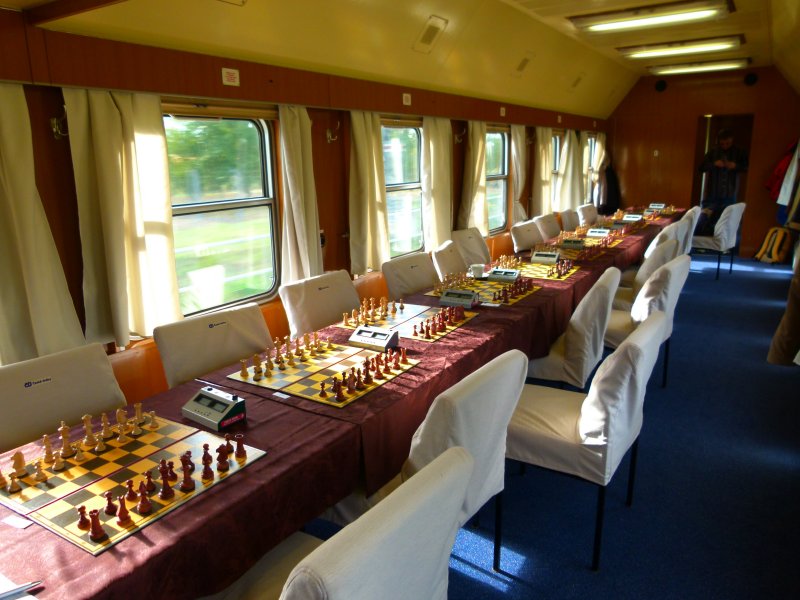 RS: In Russia you've got very high standards for live transmissions of games. You not only offer live commentaries, but also HD video transmissions and press conferences what has raised chess coverage on internet to a new level. I greatly enjoyed your coverage of the Tal Memorial, the Super Final and the candidate matches.
RS: In Russia you've got very high standards for live transmissions of games. You not only offer live commentaries, but also HD video transmissions and press conferences what has raised chess coverage on internet to a new level. I greatly enjoyed your coverage of the Tal Memorial, the Super Final and the candidate matches.
MG: Thank you. For the next Tal Memorial in November, which will be one of the strongest tournaments ever, we will try to change some things and make it even better. If several thousand people follow the tournament on internet it's of course good for the popularity of chess. Up to now we couldn't offer live commentaries in English - this has to be changed. We regard the upcoming Tal Memorial as a "dress rehearsal" for the world chess championship. Then commentaries in English shall be ensured and performed by native speakers. The negotiations are still going on. But I may already announce that this year Emil Sutovsky will do the commentary of the Tal Memorial in Russian.
The tournament will be very strong indeed: Anand, Carlsen, Kramnik, Aronian, Ivanchuk, Svidler, Karjakin, Gelfand, Nakamura and Nepomnjaschtschi. So we've got the world champion, his challenger, the World Cup winner and so on.
» Part II
source pic nr. 5 (Gluhovsky - Biolek): Prague Chess Society
Click pics for zoom.